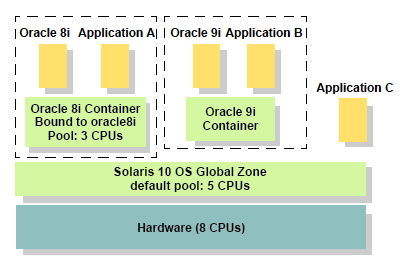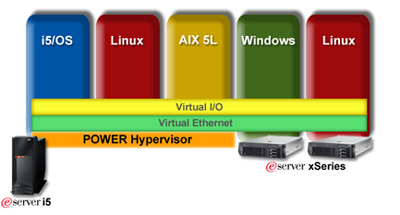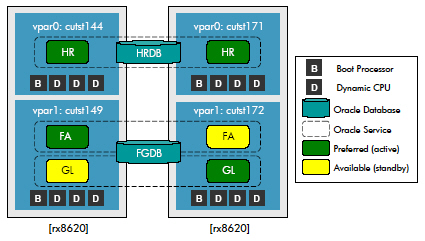
IBM promotes the use of its Dynamic Logical Partitioning (LPAR) technology that enables the virtualization of hardware resources which can be shared by multiple operating systems:

HP’s virtualization solution — Virtual Server Environment — includes various technologies such as nPartitions, vPars and Integrity VM that allow running multiple instances of HP-UX on the same server:

Additionally other vendor-neutral solutions such as VMware, Microsoft Virtual Server, and Citrix allow different operating systems to run as guest operating systems on a single physical machine. I’ve briefly discussed our support for these types of virtualization solutions in a previous article, with a special case for E-Business Suite client/server modules which make direct connections to the E-Business Suite database.
The use of operating system vendors’ virtualization technologies to host E-Business Suite falls under the same ‘not explicitly certified, but supported’ category. These technologies are covered by Oracle’s standard policy for third-party product support:
- Oracle will triage and attempt to diagnose issues reported for these configurations.
- Specific
problems isolated to virtualization software that cannot be reproduced
in standard Oracle environments — i.e. environments without
virtualization software — may need to be referred to the third-party
vendor for advanced debugging and resolution.
If you
plan to use virtualization software for your application and database
servers in a production environment, the usual advice applies: conduct
thorough functional tests, perform peak load-testing, and have detailed
fallback plans in case of issues with production environments.
References
- Virtualization & E-Business Suite
- Running Oracle Database in Solaris 10 Containers – Best Practices (MetaLink Note 317257.1). This Note is applicable for E-Business Suite Releases 11i and 12 environments.
- Support Status for VMWare (MetaLink Note 249212.1)
